
Find Help
More Items From Ergsy search
-

Do all banks have the same fee structures?
Relevance: 100%
-

Are there specific banking services more prone to opaque fee structures?
Relevance: 92%
-

Do online banks have lower fees than traditional banks?
Relevance: 72%
-

How can banks improve transparency regarding their fees?
Relevance: 71%
-

Why are some banking fees unexpectedly high?
Relevance: 70%
-

Calls for Greater Transparency in Banking Fees as Complaints Rise
Relevance: 69%
-
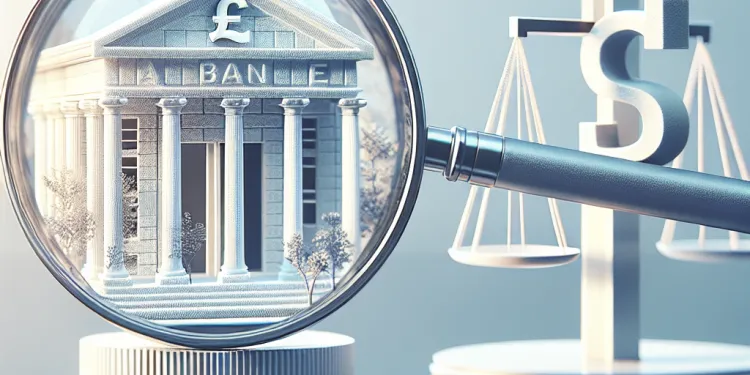
Why is there a call for greater transparency in banking fees?
Relevance: 67%
-

How can government policies influence transparency in banking fees?
Relevance: 65%
-

What initiatives are in place to address banking fee transparency?
Relevance: 65%
-

How does technology help in enhancing transparency in banking fees?
Relevance: 64%
-

What feedback do customers give regarding banking fees?
Relevance: 62%
-

What fees should I avoid when choosing a new bank?
Relevance: 61%
-

How can disputes over banking fees be resolved effectively?
Relevance: 60%
-

How do banking fees impact financial inclusion?
Relevance: 60%
-

Can customers dispute unexpected banking fees?
Relevance: 60%
-

How can consumers protect themselves from hidden banking fees?
Relevance: 58%
-

What fees should I avoid when choosing a new bank?
Relevance: 56%
-

What are some examples of hidden fees in banking?
Relevance: 56%
-
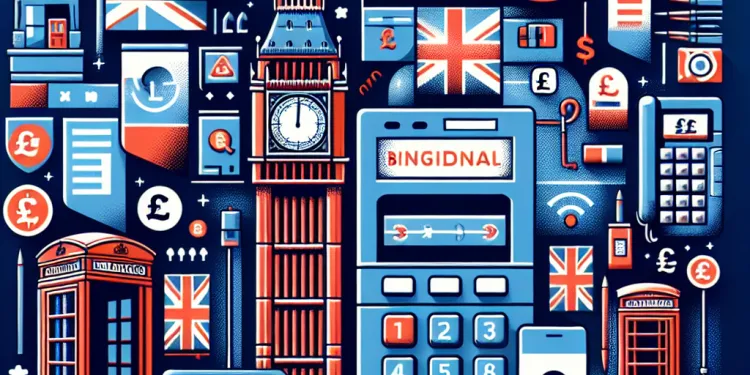
What actions are consumer rights groups taking regarding banking fee transparency?
Relevance: 53%
-

Are online banks cheaper than traditional banks?
Relevance: 52%
-

Are there any hidden fees with Monzo or Revolut?
Relevance: 48%
-

What's the difference between switching to a credit union versus a bank?
Relevance: 47%
-

Are online banks cheaper than traditional banks?
Relevance: 47%
-

What's the difference between switching to a credit union versus a bank?
Relevance: 46%
-

Are there benefits to having multiple bank accounts at different banks?
Relevance: 45%
-

Are there any fees to claim money back?
Relevance: 44%
-

Can I save money by switching my bank?
Relevance: 43%
-

Can I save money by switching my bank?
Relevance: 43%
-
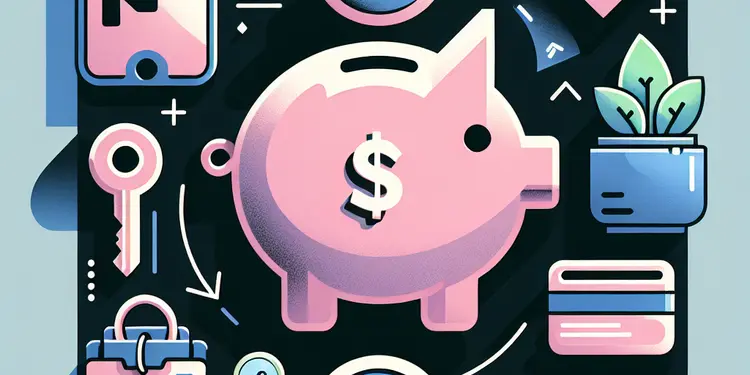
What should I consider when switching banks to save money?
Relevance: 43%
-

Are there any hidden fees I should be aware of?
Relevance: 43%
-

How can I compare banks to find the best deal?
Relevance: 43%
-

How can I compare banks to find the best deal?
Relevance: 43%
-

Can I save money by switching my bank?
Relevance: 42%
-
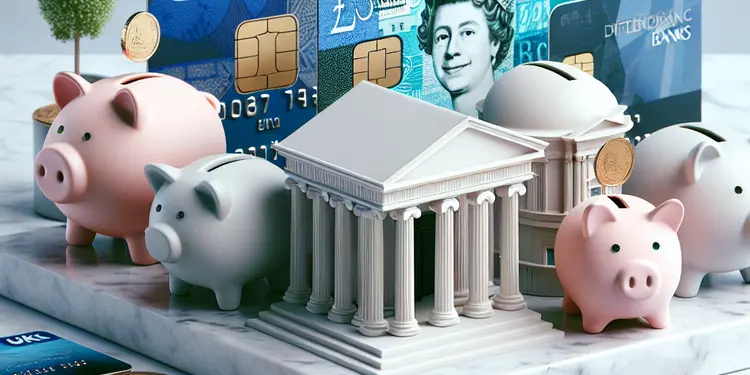
Are there benefits to having multiple bank accounts at different banks?
Relevance: 42%
-

Can switching banks help me budget better?
Relevance: 42%
-

Can I use Monzo or Revolut for everyday banking?
Relevance: 42%
-

What should I consider when switching banks to save money?
Relevance: 42%
-
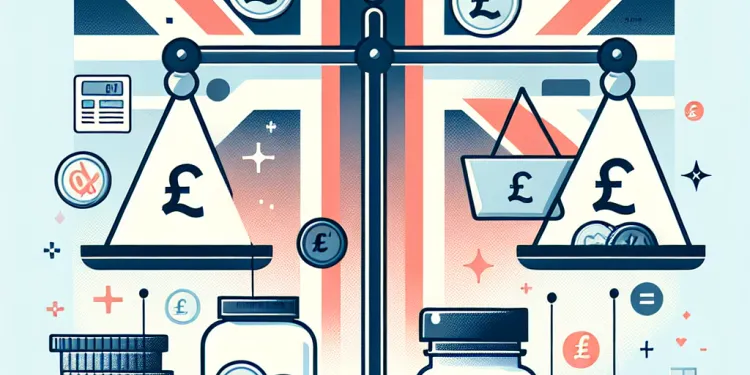
What role do regulatory bodies play in fee transparency?
Relevance: 41%
-

Is it worth switching banks for a sign-up bonus?
Relevance: 40%
-

Is there a fee to bring a case to the tribunal?
Relevance: 40%
Understanding Bank Fee Structures
When considering different banks in the UK, it's important to understand that not all banks have the same fee structures. Banks have different ways of generating revenue, and fees play a significant role in their business models. The variations in fee structures can stem from the size of the bank, its target market, and the range of services offered.
Types of Fees Commonly Charged by Banks
Most banks levy several types of fees, which can include account maintenance fees, fees for overdrafts, and charges for international transactions, among others. Account maintenance fees are often associated with premium or business accounts, where enhanced services are provided. Overdraft fees can vary significantly, with some banks offering cheaper overdrafts as a competitive advantage. Additionally, international transactions often incur higher fees, though some banks are beginning to offer more competitive rates to attract clients who travel frequently or have international financial obligations.
Variations Among Traditional Banks
In the UK, traditional banks such as Barclays, HSBC, Lloyds, and NatWest each have their own unique fee structures. These can vary significantly based on the historical practices and the strategic direction of each institution. Traditional banks may have higher overheads due to branch networks, which can sometimes reflect in their fee structures. Consumers may encounter higher maintenance fees compared to newer, digital-based banks due to these operational costs.
Digital Banks and Alternative Structures
Digital banks, like Monzo and Starling, typically offer reduced fees on certain transactions as part of their competitive appeal. These banks tend to have a lower cost base, which allows them to pass savings on to their customers in the form of reduced fees and charges. For instance, they might offer lower or no fees on foreign transactions or provide fee-free overdrafts up to certain limits. Their business model often relies on high-volume, low-margin services, attracting tech-savvy customers who appreciate these distinctions.
Regulatory Influences on Bank Fees
Regulatory bodies in the UK, such as the Financial Conduct Authority (FCA), also play a role in shaping bank fees. They work to ensure that fees are transparent and fair, protecting consumers from exorbitant charges. Regulations can mandate caps on certain fees or require banks to offer basic accounts with no or low fees to ensure accessibility for all segments of the population.
Choosing the Right Bank
For consumers, selecting the right bank involves considering one's financial needs and comparing the fees from various providers. It's advisable to review the fee schedules provided by banks and to consider the implications of these fees on one's financial situation. By understanding the fee structures of different banks, consumers can make informed decisions that best align with their financial goals.
Understanding Bank Fee Structures
Banks in the UK charge different fees. Not all banks charge the same fees. Banks make money from fees. This helps them run their business. Fees can be different based on the size of the bank, their customers, and the services they offer.
Types of Fees Charged by Banks
Banks charge different kinds of fees. These can include account fees, overdraft fees, and fees for using your card in another country. Account fees are for special or business accounts with extra services. Overdraft fees happen when you spend more money than you have in your account. Fees for using your card abroad can be high, but some banks are trying to make these fees cheaper to attract people who travel a lot.
Fees at Traditional Banks
In the UK, big banks like Barclays, HSBC, Lloyds, and NatWest have their own special fees. The fees are different for each bank. These banks may charge more because they have more branches, which costs more money. You might find their account fees higher than online banks.
Fees at Digital Banks
Online banks like Monzo and Starling usually have lower fees. They cost less to run, so they can offer cheaper fees to their customers. For example, they may charge less or no fee for using your card abroad. They also might not charge for overdrafts up to a certain amount. These banks are good for people who like using technology.
Rules About Bank Fees
The Financial Conduct Authority (FCA) helps make rules about bank fees. They make sure fees are clear and fair. Some rules say banks must have low-fee accounts so everyone can use them.
Choosing the Right Bank
Picking the right bank means thinking about what you need and looking at the fees different banks charge. Check the fee lists from banks and see what fits your needs. Knowing about different bank fees can help you choose the best one for your money goals.
Frequently Asked Questions
Do all banks have the same fee structures?
No, banks do not have the same fee structures. Each bank sets its own fees for various services, which can vary widely from one institution to another.
Why do banks have different fee structures?
Banks have different fee structures because they have different business models, target demographics, and operational costs. They set fees based on their competitive strategies and what they believe their customers are willing to pay.
What types of fees can differ between banks?
Fees that can differ between banks include monthly maintenance fees, ATM fees, overdraft fees, wire transfer fees, and foreign transaction fees, among others.
Are there banks that offer no-fee accounts?
Yes, some banks offer no-fee accounts, but they might have specific requirements such as maintaining a minimum balance or setting up direct deposits.
Can fee structures change over time?
Yes, banks can change their fee structures over time due to changes in regulations, competition, or their own business needs.
How can I find out a bank's fee structure?
You can find out a bank's fee structure by reviewing their fee schedule, which is often available on their website, in brochures, or by asking a bank representative.
Do online banks have different fee structures compared to traditional banks?
Online banks often have lower fee structures compared to traditional banks because they have lower overhead costs, but it's important to compare individual banks for specific fee rates.
Can credit unions have different fees than banks?
Yes, credit unions often have different fee structures than banks and may offer lower fees because they are not-for-profit institutions owned by their members.
Do international banks have the same fees as domestic banks?
International banks may have different fee structures compared to domestic banks, including higher fees for foreign transactions and currency exchanges.
How do promotional offers affect bank fees?
Promotional offers can temporarily reduce or eliminate certain fees for new customers or for a specific period, but it's important to read the terms and conditions.
Are there regulations that standardize bank fees?
While there are regulations that govern how banks disclose fees, there are no regulations that standardize the fees themselves. Banks have the flexibility to set their own fee amounts.
Can fees be negotiated with banks?
In some cases, fees can be negotiated, especially if you are a long-standing customer or a high-value client. It's worth discussing options with your bank representative.
Why do some banks have higher fees than others?
Banks may have higher fees due to higher operational costs, a strategy to encourage certain behaviors (like using fewer services), or simply to increase profitability.
Do student accounts have lower fees?
Many banks offer student accounts with lower or no fees to attract younger customers, but these terms may change once the customer no longer qualifies as a student.
How does account type affect bank fees?
Different account types usually come with different fee structures. For example, premium accounts may offer more free services as part of a higher monthly fee.
What are some common bank fees to be aware of?
Common bank fees include account maintenance fees, ATM withdrawal fees, account inactivity fees, overdraft fees, and wire transfer fees.
Can I be reimbursed for bank fees?
Some banks offer fee reimbursements as part of promotions or for certain account types, but this varies by bank and specific account terms.
How do I avoid paying high bank fees?
To avoid high bank fees, compare different banks' fee structures, meet account requirements to waive fees, and avoid behaviors that incur fees, like overdrawing your account.
Are business accounts subject to different fees than personal accounts?
Yes, business accounts often have different fee structures and may have additional fees not typically found in personal accounts, such as cash handling fees.
Do banks offer fee waivers for certain customers?
Some banks offer fee waivers for customers who meet certain criteria, like maintaining a high account balance, being a veteran, or having multiple accounts at the bank.
Do all banks charge the same fees?
Banks can charge you money for different things. This is called a "fee." Not all banks charge the same fees. Some banks might charge you less, and others might charge you more.
Here are some tips to help you understand bank fees better:
- Ask someone you trust to help explain the fees to you.
- Look at different banks to compare their fees.
- Use a calculator to add up the fees so you can see the total cost.
Banks do not all charge the same fees. Each bank decides how much to charge for its services. So, the fees can be very different between banks.
Why do banks have different fees?
Banks charge money for different things, like keeping your money safe or letting you use a card. This is called a fee.
Different banks charge different fees. Here are some reasons why:
- They offer different services.
- They have different costs.
- They want to attract different types of customers.
If you find bank fees confusing, using a calculator or asking a friend for help can make things easier.
Banks charge different fees because they work in different ways. They also have different types of customers and costs. Banks decide on fees to compete with other banks and based on what they think their customers will pay.
What different fees do banks charge?
Banks can charge different kinds of fees. These fees might be:
- Monthly fees to keep your account.
- Fees for using an ATM.
- Fees if you spend more money than you have.
- Fees for sending money to someone.
- Fees for using your card in another country.
To make it easier to understand, you can use tools like a calculator to help figure out costs. You can also ask someone to explain if you are unsure.
Do any banks have accounts with no fees?
Some banks let you open accounts without paying extra fees. These are called no-fee accounts. It's good to check with your bank or look online to see if they have no-fee accounts.
Ask a family member or friend to help you find more information. You can also talk to someone at the bank for advice.
Yes, some banks have accounts with no fees. But, you might have to do something to have these accounts. For example, you might need to keep a certain amount of money in the account or have money put in directly from your paycheck.
Can the way fees are set change?
Yes, sometimes the way fees are set can change. This means that the money you need to pay might go up or down.
Here’s how you can keep up with changes:
- Ask someone you trust to help you understand if fees change.
- Use a calendar to mark important dates when fees might change.
- Look out for letters or emails telling you about changes in fees.
Tools that can help:
- Online calculators to check how much you need to pay.
- Apps that remind you about payment dates.
Yes, banks can change their fees. They might do this because of new rules, to keep up with other banks, or because they need to for their business.
How can I find out what fees a bank charges?
Here are some ways you can learn about bank fees:
- Visit the bank's website. Look for information about fees.
- Call the bank and ask them to explain the fees to you.
- Visit a bank branch and talk to a bank worker. They can help you understand the fees.
It's important to ask questions if you don't understand something. A friend, family member, or support worker can help you.
You can also use tools on your computer or phone that read text out loud. This can help you if you have trouble reading.
You can learn what fees a bank charges by looking at their list of fees. This list can often be found on the bank’s website, in their brochures, or you can ask someone who works at the bank to help you.
Do online banks charge different fees than regular banks?
Some online banks might have different fees than regular banks. This means they may charge less or have different kinds of fees.
It's a good idea to check and compare fees when choosing a bank. You can ask someone to help you if it's hard to understand.
You can also use tools like a calculator to see how much you might pay in fees.
Online banks usually cost less than regular banks. This is because they do not have to pay for big buildings. But you should still check each online bank to see what fees they have.
Do credit unions have different fees than banks?
Credit unions and banks might charge different fees. Fees are the money you pay for services.
Want to understand more? You can use tools like:
- Pictures or drawings showing what fees are.
- Talking to someone who can explain it simply.
Yes, credit unions manage money differently than banks. They might have lower fees. This is because they are not-for-profit and their members own them.
Do banks from other countries have the same fees as banks in our country?
Banks from other countries might charge different fees than banks in our own country.
If you find it hard to understand these fees, you can:
- Ask someone to explain them to you.
- Use online tools that help with money words.
- Look for simple guides about bank fees.
Big banks from other countries might charge different fees than banks in your country. These fees could be higher if you are buying things in other countries or changing money from one type to another.
How do special offers change bank fees?
Sometimes banks give special deals to get new customers. These deals might change how much you pay in bank fees.
Here’s how it might work:
- A bank might say, "No fees for the first 6 months!"
- Sometimes, you get lower fees if you sign up during a special deal.
Tools to help you understand:
- Ask a friend or family member to explain.
- Use a calculator to see how much money you can save.
- Look at pictures or videos that explain bank fees.
Special offers can make fees cheaper or get rid of them for new customers for a short time. But you should read the rules carefully.
Are there rules for bank fees?
Banks sometimes ask for money when you use their services. These are called bank fees. But are there rules that say how much banks can charge?
Some rules help keep bank fees fair. This means banks can’t charge whatever they want. The rules make sure everyone knows what they must pay.
If you want help understanding bank fees, you can ask someone you trust. They can explain it to you. Using pictures or videos can help too!
Banks have rules about telling you what their fees are. But there are no rules about what the fees have to be. Banks can choose how much they charge you.
Can you talk to the bank about changing fees?
Sometimes, you can talk to your bank to pay less money in fees. This is easier if you have been with the bank for a long time or if you have a lot of money with them. Try asking your bank if they can help you.
Why do some banks charge more money?
Some banks make you pay more money than others because they offer different services. It's like choosing between buying a toy from two different stores. One store might have a nicer toy but it's more expensive. Another reason is that banks need to make money to keep running, and they do this by charging fees. Some banks need to charge more to cover their costs.
If you find it hard to read, try these tips:
- Ask someone you trust to help you read the words.
- Use a ruler or your finger to follow along as you read.
- Read in a quiet place where you can focus.
Banks can sometimes charge more money for their services. This can happen because it costs them more to run their business, because they want people to use fewer of their services, or because they want to make more money.
Do students pay less money for their accounts?
Banks often have special accounts for students. These accounts can have fewer fees or no fees at all. This is to get more young people to join the bank. But when the person is not a student anymore, the bank might change the rules and start charging more fees.
How do different bank accounts change the fees you pay?
Different accounts have different costs. Some special accounts cost more money each month but give more free things.
What bank fees should you know about?
Banks sometimes charge you money for different reasons. Here are some fees you might see:
- Monthly Fee: This is money you pay each month to keep your account open.
- ATM Fee: If you use a cash machine that is not your bank’s, you might pay a small fee.
- Overdraft Fee: You might pay if you spend more money than you have in your account.
- Transfer Fee: This is money you pay if you send money to another bank.
To help you understand better, you can:
- Ask someone at the bank to explain.
- Use simple online videos about bank fees.
- Write down questions and ask a friend or family member.
Here are some common bank fees:
- Money taken from your account each month. This is called a maintenance fee.
- Money taken when you take out cash from an ATM.
- Money taken if you don't use your account for a long time.
- Money taken if you spend more than you have. This is called an overdraft fee.
- Money taken when you send money to someone else's bank. This is called a wire transfer fee.
To help understand bank fees better, you can:
- Use an online calculator to see how fees add up.
- Ask someone you trust to explain fees to you.
- Use apps that help track your spending and fees.
Can I get my money back for bank fees?
Some banks give back fees for special offers or certain accounts. Each bank is different and has its own rules.
How can I stop paying big bank fees?
Here are some simple steps to pay less money in bank fees:
- Choose the right bank: Look for a bank with low fees or no fees.
- Read the rules: Ask the bank to explain their fees so you know what to expect.
- Stay on top: Keep track of your money. Check your account often to avoid extra charges.
- Use tools: Use phone apps to manage your money and get alerts about fees.
- Ask for help: If you don’t understand something, ask someone you trust to explain.
These steps can help you save money!
To stop paying big bank fees, try these tips:
- Look at different banks and see how much they charge.
- Follow the bank's rules to skip paying fees.
- Don't let your account go below zero, so you don't have extra fees.
It might help to use a budget app or ask someone you trust to help you manage your money.
Do business accounts have different fees than personal accounts?
Yes, business accounts can have different fees than personal accounts. They might have extra fees like cash handling fees.
Do Banks Let Some People Skip Paying Fees?
Some banks let certain people avoid paying fees. If you want to know more, try asking your bank. You can also bring a helper when you visit the bank or call them. This might help you understand if you qualify and what steps you need to take.
Some banks let you skip paying fees. You can do this if you have a lot of money in your account, if you are a veteran, or if you have more than one account at the bank.
Here are some things you can try:
- Ask the bank if you can skip paying the fees.
- Try to keep more money in your account.
- See if you can have more than one account at the same bank.
Useful Links
This website offers general information and is not a substitute for professional advice.
Always seek guidance from qualified professionals.
If you have any medical concerns or need urgent help, contact a healthcare professional or emergency services immediately.
Some of this content was generated with AI assistance. We’ve done our best to keep it accurate, helpful, and human-friendly.
- Ergsy carfully checks the information in the videos we provide here.
- Videos shown by Youtube after a video has completed, have NOT been reviewed by ERGSY.
- To view, click the arrow in centre of video.
- Most of the videos you find here will have subtitles and/or closed captions available.
- You may need to turn these on, and choose your preferred language.
- Go to the video you'd like to watch.
- If closed captions (CC) are available, settings will be visible on the bottom right of the video player.
- To turn on Captions, click settings .
- To turn off Captions, click settings again.
More Items From Ergsy search
-

Do all banks have the same fee structures?
Relevance: 100%
-

Are there specific banking services more prone to opaque fee structures?
Relevance: 92%
-

Do online banks have lower fees than traditional banks?
Relevance: 72%
-

How can banks improve transparency regarding their fees?
Relevance: 71%
-

Why are some banking fees unexpectedly high?
Relevance: 70%
-

Calls for Greater Transparency in Banking Fees as Complaints Rise
Relevance: 69%
-

Why is there a call for greater transparency in banking fees?
Relevance: 67%
-

How can government policies influence transparency in banking fees?
Relevance: 65%
-

What initiatives are in place to address banking fee transparency?
Relevance: 65%
-

How does technology help in enhancing transparency in banking fees?
Relevance: 64%
-

What feedback do customers give regarding banking fees?
Relevance: 62%
-

What fees should I avoid when choosing a new bank?
Relevance: 61%
-

How can disputes over banking fees be resolved effectively?
Relevance: 60%
-

How do banking fees impact financial inclusion?
Relevance: 60%
-

Can customers dispute unexpected banking fees?
Relevance: 60%
-

How can consumers protect themselves from hidden banking fees?
Relevance: 58%
-

What fees should I avoid when choosing a new bank?
Relevance: 56%
-

What are some examples of hidden fees in banking?
Relevance: 56%
-

What actions are consumer rights groups taking regarding banking fee transparency?
Relevance: 53%
-

Are online banks cheaper than traditional banks?
Relevance: 52%
-

Are there any hidden fees with Monzo or Revolut?
Relevance: 48%
-

What's the difference between switching to a credit union versus a bank?
Relevance: 47%
-

Are online banks cheaper than traditional banks?
Relevance: 47%
-

What's the difference between switching to a credit union versus a bank?
Relevance: 46%
-

Are there benefits to having multiple bank accounts at different banks?
Relevance: 45%
-

Are there any fees to claim money back?
Relevance: 44%
-

Can I save money by switching my bank?
Relevance: 43%
-

Can I save money by switching my bank?
Relevance: 43%
-

What should I consider when switching banks to save money?
Relevance: 43%
-

Are there any hidden fees I should be aware of?
Relevance: 43%
-

How can I compare banks to find the best deal?
Relevance: 43%
-

How can I compare banks to find the best deal?
Relevance: 43%
-

Can I save money by switching my bank?
Relevance: 42%
-

Are there benefits to having multiple bank accounts at different banks?
Relevance: 42%
-

Can switching banks help me budget better?
Relevance: 42%
-

Can I use Monzo or Revolut for everyday banking?
Relevance: 42%
-

What should I consider when switching banks to save money?
Relevance: 42%
-

What role do regulatory bodies play in fee transparency?
Relevance: 41%
-

Is it worth switching banks for a sign-up bonus?
Relevance: 40%
-

Is there a fee to bring a case to the tribunal?
Relevance: 40%


